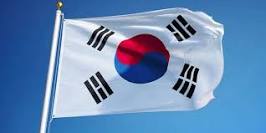South Korea’s automotive industry, a cornerstone of its export-driven economy, faces a significant threat from the 25% tariffs imposed by the United States. These tariffs, part of a broader protectionist trade policy enacted by the Trump administration, target major trading partners, including South Korea. The impact on South Korea is projected to be substantial, given that automobiles and auto parts constitute its primary exports to the US, totaling $42.9 billion in 2023. This economic vulnerability has prompted the South Korean government to unveil a comprehensive emergency support package worth $2 billion, aimed at mitigating the potential damage and bolstering the domestic auto industry.
The South Korean government’s response is multifaceted, addressing immediate needs while maintaining flexibility for future adjustments depending on the evolving situation. A core component of the support package is the expansion of a low-cost financing program for the auto industry, augmented by an additional 2 trillion won ($1.34 billion). This financial injection aims to provide much-needed liquidity to automakers navigating the turbulent waters of increased tariffs. Furthermore, Hyundai Motor, the country’s largest automaker, has partnered with major financial institutions to establish a separate 1 trillion won support program. This collaborative effort underscores the seriousness with which the industry and the government are approaching the challenge.
Beyond direct financial assistance, the government has introduced measures to alleviate the tax burden on affected companies. Tax deferrals of up to nine months will provide a temporary reprieve, allowing businesses to allocate resources strategically and weather the initial impact of the tariffs. This move recognizes the immediate financial strain the tariffs impose and offers a measure of breathing room for companies to adapt their strategies. Recognizing the potential for reduced export volumes due to the tariffs, the government has also emphasized the importance of strengthening the domestic market. This strategy aims to offset export losses by stimulating domestic demand and maintaining the country’s manufacturing base.
A key aspect of the domestic market focus is the promotion of electric vehicles (EVs). The government plans to implement an EV subsidy system linked to manufacturer discounts, encouraging consumers to purchase EVs and thereby boosting domestic sales. Moreover, the government will increase its matching support ratio for EV subsidies from the current 20-40% to a more generous 30-80%. This heightened support underscores the government’s commitment to fostering the EV market and mitigating the impact of the tariffs on the broader automotive sector. This multifaceted approach aims to create a more robust and sustainable auto industry less reliant on exports to the US market.
The backdrop to these developments is a global atmosphere of uncertainty surrounding international trade. The US tariffs have roiled stock markets and sparked concerns about a potential trade war. Investors are anxious about the duration and ultimate impact of these tariffs, unsure whether they represent a negotiating tactic or a permanent shift in US trade policy. President Trump’s stated goal is to reduce or eliminate the US trade deficit, and he has signaled a willingness to negotiate with other countries. However, his firm stance on tariffs has created a tense environment, with potential for escalation or compromise.
The US trade deficit with South Korea in 2024 amounted to over $66 billion in goods, a figure that has likely fueled the Trump administration’s focus on trade imbalances. The tariffs, therefore, appear to be a direct attempt to address this perceived imbalance. While communication channels between the US and South Korea remain open, as exemplified by Trump’s conversation with South Korea’s acting president, the path forward remains unclear. The South Korean government’s proactive response reflects the gravity of the situation and the potential for significant disruption to its economy. The success of these measures will depend on a number of factors, including the duration of the tariffs, the response of the domestic market, and the broader global trade environment.


